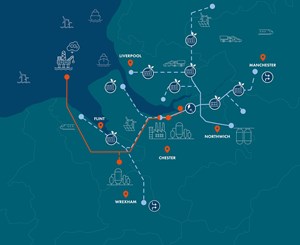Eni, UK government to develop HyNet North West CCS cluster
(WO) – Eni has reached an agreement in principle with the UK Government’s Department of Energy Security and Net Zero (DESNZ) on the key terms and conditions for the economic, regulatory and governance model for the transportation and storage of carbon dioxide at the HyNet North West industrial CCS cluster.
Set out in Heads of Terms, these principles pave the way for the completion of definitive agreements in the coming months. The agreement is an important step towards HyNet North West becoming fully operational as the world’s first asset based regulated CCS business, providing carbon transportation and storage for companies in the North West of England and North Wales.
Eni believes CCS could be crucial in energy transition strategy. It has established a leading position in the UK, where Eni is the CO2 transport and storage operator of the HyNet North West consortium.
The company is planning a second UK CCS hub to decarbonize the Bacton Energy Hub and the Thames Estuary region – and has been granted a license to store carbon dioxide in the depleted Hewett gas field in the Southern North Sea. Together, HyNet North West and Bacton have the capacity to store 500 million tonnes of CO2.
HyNet North West will transform one of the country’s most energy intensive industrial districts into one of the world’s first low-carbon industrial clusters. The project will help preserve thousands of local jobs by supporting the decarbonization of cement, energy, chemicals as well as attracting investment into new industries thus creating new jobs.
HyNet North West is expected to be operational by the middle of the current decade with a storage capacity of approximately 4.5 million tonnes of CO2 per year in the first phase. It has the potential to remove approximately 10 million annually after 2030. HyNet North West will make a major contribution to the UK’s target of storing 20-30 million tonnes of CO2 annually by 2030.
Eni has developed extensive expertise in storing gas in depleted fields over many decades. It intends to use this to repurpose some of its existing upstream assets into carbon dioxide storage hubs to decarbonize both its own and third parties' industrial activities at a competitive cost and with fast time to market. The aim is to achieve a total annual storage capacity of 30 million tonnes of CO2 by 2030 through projects under development not only in the United Kingdom but also in Italy, in Libya, Australia and Egypt.



